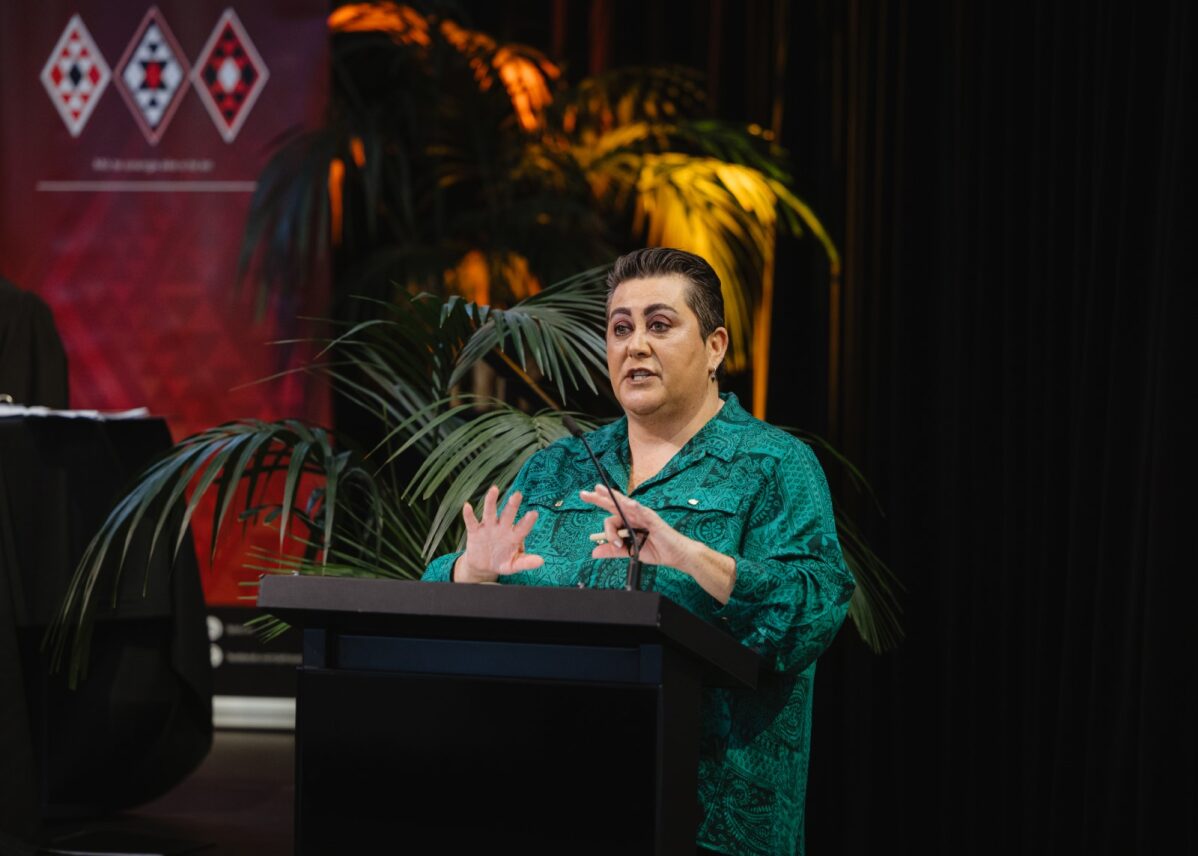The Commission on Episcopal Leadership will meet for the first time in January so we had a chat with chair Professor Khylee Quince about what she is hoping the group can achieve over its three years.
Khylee (Te Roroa, Ngāpuhi and Ngāti Porou) was the first Māori dean of law at a New Zealand university, is a member of the NZ Parole Board, and has been chair of the New Zealand Drug Foundation.
Kia ora Khylee! Can we start by talking about how you came to chair the commission?
Sure! So there was an invitation a few months ago from my cousin Hirini Kaa. He knows of the kind of work that I do. I’m a bit of an insider-outsider to the church. I have a lot of whānau in the church, my mother is a priest along with many members of my extended family so I suppose Hirini let the Archbishop know I had that inside knowledge and the skills to lead the commission.
So it’s clear why the church wanted you to be involved, but what made you want to take on this role?
I’m a bit of a magpie in the sense that I love to know new things and to do a deep dive into a new project. I’ve been tangential to church matters my whole life and this was an opportunity to marry together my legal skills and the business of the church. And then a bit of obligation, really. It’s pretty much incumbent upon us as Māori if someone asks you to do something and, if you can, you should. So I do feel a bit of duty, yeah.
Where are things at with the Commission at the moment? Have you met?
Not in person. Some of the members met at Te Rūnanganui but as a whole we’re going to have our first face-to-face meeting in the new year. We’ve been doing a bit of scoping really to make as much opportunity of the time we have together by having clear work plan. These are important people who do a lot of important things so we want to make sure we’re not starting from scratch.
What are the first things you need to tick off at that meeting?
There are five key areas the Archbishop would like the commission to look at – five different pou, which essentially reflect what I think of as the life-cycle of a bishop, from appointment through to decision-making, and the care during his or her tenure and retirement. So we’ll start working through one of those pou – probably retirement because it’s the most pressing one in terms of things on the horizon. There are always bishops retiring. So we thought we’d model working through one of those and what our advice might be, and then that will be the model for working through the other four.
Those five pou were discussed at Te Rūnanganui and the debate got a little heated. What do you think will be some of the challenges as the commission discusses the pou?
My view of a flourishing church is one that reflects the principles of Christianity and the principles of tikanga Māori. And everybody in the church knows what those things are and there’s a challenge in marrying those two together.
There’s also a challenge in balancing the hierarchical structure of the church with affirming the self-determination of the amorangi over various things.
One thing I would say is open, strident debate is a normal part of Maori decision-making and democracy. We’re used to having those difficult conversations. I put it in this way – it’s heading toward productive discomfort. It’s to air things out to get to a consensus.
At the end of the commission’s three years, what will make you feel like you’ve done a good job?
I think success will look like we’ve got a worked-up set of principles and we’ll feel comfortable we’ve had the time and resource to get those right and that we’ve tested them with the church community. My personal view is I would like us to be quite iterative so, for example, if we work out for our retirement pou an idea of what should be done in that space, that that can be rolled out before the end of the commission. So it’s not a grand reveal at the end and that we can start to influence church practice as we’re going, if we do get buy-in and the necessary checks are made to say, yes, that looks good.
